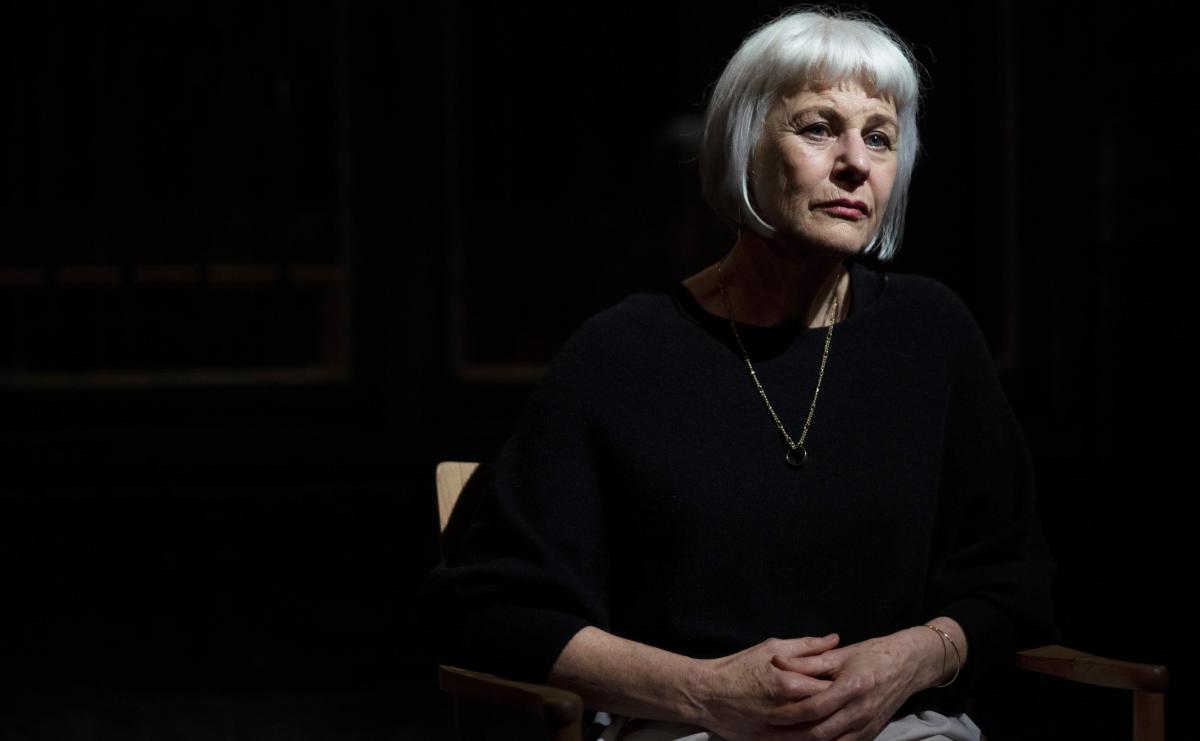I’ve been meaning to read The Year of Magical Thinking since it was published, to great acclaim, in 2005 but it never seems the right time to choose a book so soaked in grief. As Didion herself remarks, this work is telling people something they do not want to hear.
If you are inclined to avoid the play for the same reason, please don’t. Despite its confronting subject matter, The Year of Magical Thinking is not, in fact, difficult to watch. There is no emotional manipulation, no theatrical artifice. The tissues stayed in our pockets.
Instead we felt like privileged listeners, given access to an extraordinarily insightful confrontation with the way in which grief loosens our grasp on reason. It is a compelling, almost hypnotic work, which takes us inside another person’s mind and, thereby, inside ourselves.
The context of the book is well known. Joan Didion’s husband, fellow writer John Gregory Dunne, died suddenly while their only child, a daughter, Quinana, lay struggling for her life in intensive care. Didion wrote The Year of Magical Thinking as a meditation on her own response to her husband’s death.
Just before it was published, Quinana died. The play, which followed the book in 2007, incorporates both deaths.
Magical Thinking is the belief in many early societies – and also in the minds of young children – that our own thoughts can influence the external world. Didion uses the term to explain a kind of ordinary madness which takes hold as she navigates the foreign world of grief: a state of mind where she finds herself signing autopsy papers and yet refusing to give away her husband’s shoes because that would mean acknowledging that he no longer needs them. Her rationality snags on the reality of death so that on occasions she is living in a parallel world in which she is almost able to believe he will return.
It is the madness of the completely sane. Didion is a sensible, wry narrator, who is able to articulate a profound cognitive dissonance that is also utterly ordinary. She weaves it among recollections and reflections to create an utterly truthful account of grief.
Jillian Murray inhabits Didion with absolute conviction. She becomes a woman of a certain age, unremarkably dressed, unremarkable in her movements or affect, yet utterly spell-binding. There is no ego in this performance. Murray is a vehicle for Didion’s words, so authentic that when the performance ended, I found her bow jarring. I still believed she was Didion.
Murray makes what must be a very difficult role look natural. She maintains an unusually even emotional temperature, just allowing her eyes to tear up occasionally, making the odd stumble which might be an actor’s forgotten line or a bereaved person’s momentary distraction – it really doesn’t matter which. Her evenness keeps the performance true to the tone of honest self-inquiry that explores the ways in which grief can be intellectually not just emotionally confronting.
Director Laurence Strangio has worked with Murray to offer an appropriately pared down production. Movement is natural, gestures are small. The stage set is no more than a chair and table. The lighting is subtle and the sound design quiet, though effective. Nothing is allowed to interfere with Didion’s words.
This is a small work in theatrical terms but a vast one in its human impact. If theatre is about understanding ourselves and others, it is as grand as theatre can be.
5 stars out of 5 ★★★★☆
The Year of Magical Thinking
by Joan Didion
Performed by Jillian Murray
Director: Laurence Strangio
Lighting Design: Andy Turner
Sound Design: Darius Kedros
Sound Design Intern: Emmanuel Cundasamy
fortyfivedownstairs, Melbourne
31 October to 17 November 2019




